#asianwiki
Text
Nonton ❤️ DOWNLOAD: Drakor When Ask the Stars Gossip (2023) Lee Min Ho Full Episode Sub Indo Drakorindo MyDramaList
❤️ Drama Lee Min Ho Terbaru ❤️ Tempat Nonton ❤ Link Situs Tempat Nonton Drakor Ask the Stars Sub Indo dan Download Film Drama Terbaru Korea When the Stars Gossip (2023) Sub Indo Drakorindo Gratis. Ost Info Sinopsis ❤️ Drakor When the Stars Gossip 2023 ❤️AsianWiki Kapan Tayang Dimana, Jadwal Release date Biodata ❤️ Pemain Pemeran Cast When the Stars Gossip (2023) Trailer ❤️ MyDramaList Lengkap…

View On WordPress
0 notes
Text
hong hae-in deciding not to tell anyone except one person about her illness has been reminding me of twenty years old again a lot. ha no-ra thought she was dying because of the report mix-up she also didn't tell her husband and her son just her best friend. then she learns she was never sick but her son finds out and he was so angry and heartbroken that his mother didn't even tell them when she thought she was gonna die. that scene always stuck with me. while she was way too nice of a mother to him he never was a good son but he was also just a teenager who was more focused on his university admission and after finding out he genuinely became a good son to his mother. BUT hae-in's mother is not a teenager she's her fucking mother who the moment she realised her son died after saving hae-in started resenting her... her own daughter who almost died too and i hope it eats her alive that hong hae-in never told her
#i mean she almost died but you chose to resent your own daughter ofc she didn't tell you when she's dying again#ik she'll be forgiven and their relationship will become better but a girl can dream#queen of tears#anyway twenty years old again was great#back then all i used to do was watch kdramas but it was one of the ones that stayed great until the end#good times#now it's a miracle if i am able to watch any till the end#just checked the asianwiki and her husband (young ver.) was played by KANG TAE-OH...#i didn't get it then but now ik it was that damn smile of his 😔#kdrama
15 notes
·
View notes
Text
WOW, I'm good. I was looking through Yeo Jin Goo's filmography on MDL, and it turns out he DID play a young Shin Ha Kyun, as a ten year old child actor, back in 2006 in a movie called No Mercy For the Rude.
#[pats self on the back for having a good eye]#yeo jin goo#shin ha kyun#no mercy for the rude (2006)#don't know where to watch it#but the trailer is on the asianwiki page#(the kid in the trailer is not yeo jin goo)#gtc's intermittent and incredibly slow viewing of beyond evil
7 notes
·
View notes
Note
Since you are one of the few Tumblr blogs posting about 'Informa' - do you know the name of the actress who portrayed the young woman who worked in the newsroom (helped with research, was confronted by the crooked cop)? Thanks in advance for your help if you know!
took a lil bit of digging since apparently no english sites have the full cast. but this picture of all the characters lists her actress as ‘ryoka oshima’! 🤙
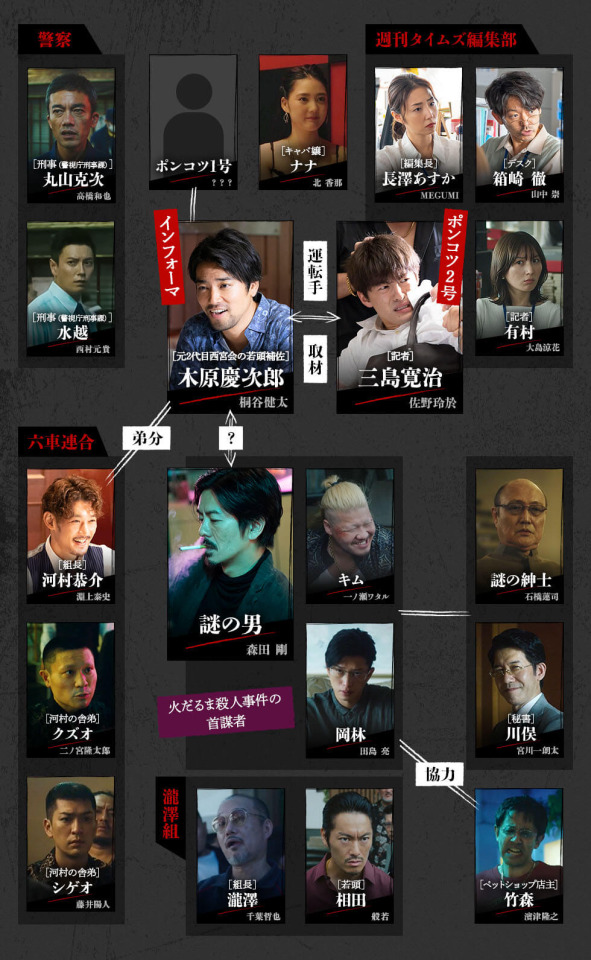
2 notes
·
View notes
Text
I need the people behind asianwiki.com to work their magic on Dramaworld. Because I get some of the cameos as a k-drama fan, but I'm operating pretty blind here 😭

2 notes
·
View notes
Text
i knew that the actress that played dongsik's mom also played hanjun's mom in café minamdang, but i didn't know that the actress that played juwon's mom was also in café minamdang as the doctor 👀
#i just love finding actors in other works like i know you!!! hi! i know you!!!#like wow!!#i love asianwiki dot com i trust that it will help me find any actor that looks familiar#btw spoilers for both :] >>#so dongsik's mom stays alive while juwon's mom is dead! what a coincidence#i'm sorry-#wait that asianwiki thing sounded so sponsored lol this is not sponsored <3 but if you wanted it to be then 👉👈#beyond evil#café minamdang#cafe minamdang#i haven't been active here so idk if anyone said this before but i connected the dots! (you didn't connect shit) i connected them!!
6 notes
·
View notes
Text
btw i love left councillor's character
#bloody heart is written soo well imo#byeeee just went on asianwiki to check something and all the comments are so negative 😭 rip#but i personally love how the conflict is not simply about king vs left state councillor (even though it masks itself as!)#and there is not a good vs bad side#even though you might think so at the start! but as it goes on it challenges you to think#of course you root for the king but........#👁️👁️#anyways
2 notes
·
View notes
Text
watching r point trying to figure out who the fuck private jung is
#aa#they introduced everybody’s names so fast i only know like four people’s names 😭😭😭#can’t find him on wikipedia or asianwiki. where do we go from here.
0 notes
Text
Some WLW (?) Jdrama & Kdrama recommendations!
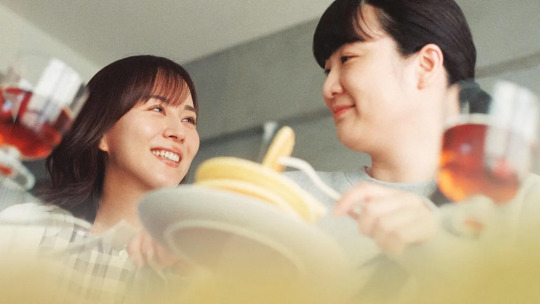
Jdramas and Kdramas have a (not-entirely-unearned) reputation for being very straight, but here are a few which are either canonically F/F or which prominently feature a female-female pair-- please enjoy! For those who enjoy following series in real time, Chaser Game W and She Loves to Cook, and She Loves to Eat S2 are both airing this January 2024 :)
As with my post on anime with yuri subtext, since subtext is so subjective, this list only includes series which I’ve actually watched, and so is by no means intended to be comprehensive. Also, it doesn't include any webseries, since those probably deserve a post of their own.
At-a-glance list:
Miss Sherlock (8 episodes, 2018) (subtext)
Night Light (20 episodes, 2016) (subtext)
Tokusatsu Gagaga (7 episodes, 2019) (subtext)
Painter of the Wind (20 episodes, 2008) (canon?)
She Loves to Cook, and She Loves to Eat (10 15-minute episodes and counting, 2022~) (canon)
Sono Toki, Heart wa Nusumareta (5 episodes, 1992) (canon)
Chaser Game W (10? 30-minute episodes, 2024) (canon)
Doctor X (7 seasons and counting, 2012~) (subtext)
Bonus: SKY Castle (20 episodes, 2018) (subtext)
Summaries under the cut!
1. Miss Sherlock / ミス・シャー��ック (8 episodes, 2018) (subtext) – MyDramaList | AsianWiki
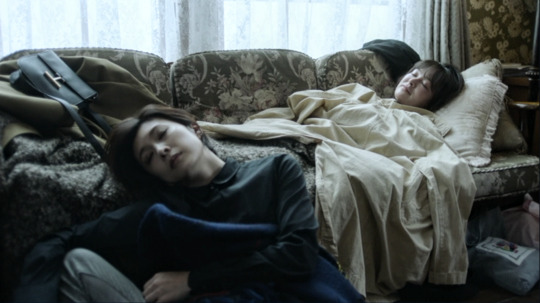
The elevator pitch for this show is simple: it’s Sherlock Holmes, but where Holmes and Watson – here named “Sherlock” and Tachibana Wato, and played by Takeuchi Yuko and Kanjiya Shihori, respectively – are both female, and the cases are all set in modern Tokyo. As with other adaptations, mystery-solving and the budding relationship between the two leads takes centre stage, but Miss Sherlock manages to carve out an identity all its own.
There’s a calm beauty to its visuals, which favour sunlight and urban greenery, and the show’s focus on former doctor Wato as she tries out new jobs and goes to therapy means that there’s a surprisingly high number of slice-of-life scenes. It’s also subtly more female-focused than the source material; Sherlock’s gossipy but good-natured landlady Ms. Hatano (Ito Ran) is as much a member of the household as Sherlock and Wato, and the cases often revolve around female characters. But more than anything, it’s just really fun to watch Sherlock and Wato’s relationship bloom as they snip and snipe and are utterly unable to stay out of each other’s space (literally – the body language and blocking is *chef’s kiss*). Their relationship is the heart of the show – watch this one until the end, you won’t regret it!
(CW: psychological abuse, manipulation, and genre-typical murder, violence, and gore)
2. Night Light / 불야성 (20 episodes, 2016) (subtext) - MyDramaList | AsianWiki
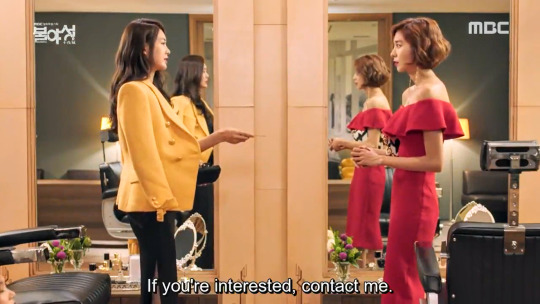
(Note: spoilers for the mid-season twist, but it’s impossible to allude to a good portion of the F/F subtext without doing so, and I think knowing the twist ahead of time doesn’t make it any less enjoyable.)
Night Light is a rather odd show. It’s simple enough on the face of it, a story about successful but ruthless CEO Seo Yi-kyung (an icy Lee Yo-won) who tries to mold the younger Lee Se-jin (a puppy-eyed Uee) in her own ambitious image, only for her protege to develop the conscience she never had and move to stop her dastardly plans… but upon watching it’s a totally different creature, thanks to the alchemic reactions of some delightfully contradictory acting choices (Uee’s performance convinces viewers less of Se-jin’s supposed latent desire for power and money, and more of a deep love and devotion for the CEO) and the unintentionally (?) inneundo-laden script (“If I like something once, I never forget it– whether it’s a dress… or a person,” declares the CEO less than ten minutes into the first episode while gazing intently at Se-jin).
Honestly, it’s a wonder this series ever got made, but you certainly won’t see me complaining! The first part is full of boss/subordinate goodness; Se-jin is unable to resist the CEO’s magnetic pull despite her hot-and-cold behaviour, while the CEO cannot bring herself to push Se-jin away completely. And then, when Se-jin makes her mind up to stop the CEO, it morphs into a corporate take on a (subtextual) lovers-on-opposite-sides situation, where it is precisely Se-jin’s feelings for the CEO that motivate her to stop her. In short, it’s a workplace GL fan’s dream.
Note: If you do watch it, skip the corporate politicking cutscenes with the old men, you’ll thank me later. Also, there’s a prominent male character who is the CEO’s ex and who works closely with Se-jin in the second half, but don’t worry, all the M/F romance is in the past (and doesn’t get much screentime)– he and Se-jin aren’t interested in each other at all.
3. Tokusatsu Gagaga / トクサツガガガ (7 episodes, 2019) (subtext) - MyDramaList | AsianWiki

Nakamura Kano (Koshiba Fuka) lives and breathes tokusatsu shows (think Power Rangers, if you’re not familiar), but keeps it a secret from her work colleagues to avoid being shunned or laughed at. And yet she yearns for connection, so when she sees a woman on the subway bearing a keychain from her favourite show (Yoshida Hisami, played by Kurashina Kana), she is determined to find her again.
Although ostensibly about being a tokusatsu fan as an adult, this show is rife with queer subtext, and not in the usual way. It deals with the difficulties of staying in the closet (regarding being an adult tokusatsu fan), the desire to connect with other queer people adult tokusatsu fans and how one might do so through hints and signals, parental disapproval arising from gendered and social expectations (that tokusatsu shows are for boys, and magical girl shows for girls), intersectionality and finding comradeship with other minorities people who are excluded due to their interests, and even generational gaps wherein younger queers fans may underestimate the obstacles that still exist. Although all that might sound a bit stressful, it isn’t actually! Difficult incidents are handled with sympathy and a dash of wry humour, and the show never loses sight of the fact that it – above all else – is a story about finding queer community in the face of a heteronormative hostile world, told with warmth and the nuance of lived experience.
4. Painter of the Wind / 바람의 화원 (20 episodes, 2008) (canon?) - MyDramaList | AsianWiki
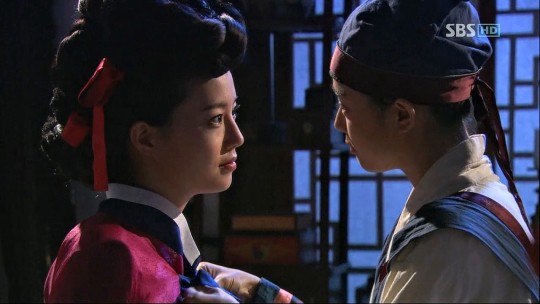
Adapting the novel of the same name by Lee Jung-myung, Painter of the Wind takes as its protagonist a gender-bent version of real-life Joseon-era painter Shin Yun-bok (Moon Geun-young), whose paintings are used to weave a tale of artistry, political intrigue, and romance, and more than anything else to offer modern-day viewers a glimpse of everyday life in 18th-century Korea.
While it may sound like Dickinson’s boring cousin, apart from having a common preoccupation with reframing historical works, another similarity the two shows share is that Painter of the Wind is also very gay. Starting from the first episode, Yun-bok meets and becomes fascinated by the courtesan Jung-hyang (Moon Chae-won), who despite her initial aloofness is drawn to Yun-bok’s intellect and sensitive demeanour. It’s a real meeting of the minds, their witty repartee in early episodes reminiscent of Twelfth Night’s Viola and Olivia, and their relationship isn’t siloed off from the main plot either: Yun-bok’s infatuation quickly starts causing issues with her academic career, and the two eventually have to contend with Jung-hyang’s precarious position as a courtesan as well.
Unfortunately, all this is undermined in the back half of the show, which tries to gaslight viewers into thinking that Yun-bok’s feelings for Jung-hyang were purely platonic all along and that she totally has romantic feelings for her much older male mentor— but hey, at least it’s an open ending. Despite everything, though, I can’t think of another serious historical TV show which features such a prominent F/F narrative for its main character, even nearly two decades later. (Let me know if you have any others! And no, Gentleman Jack doesn’t count, it’s not exactly traditional in style!)
(CW: period-typical sexism)
5. She Loves to Cook, and She Loves to Eat / 作りたい女と食べたい女 (10 15-minute episodes and counting, 2022~) (canon) - MyDramaList
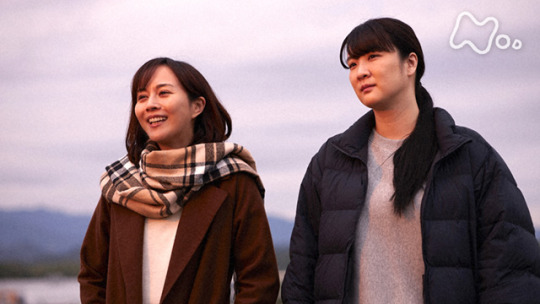
Based on Yuzaki Sakaomi’s manga of the same name, this simple but sweet show follows home-cooking extraordinaire Nomoto Yuki (Higa Manami), who yearns to cook large-scale dishes but doesn’t eat enough to justify making them. Luckily for her, her neighbour Kasuga Totoko (Nishino Emi) has a massive appetite!
It’s always lovely to see more grounded stories about working women, especially when they’re as cute as this one. Though it touches upon some slightly more serious issues, such as with regard to gendered expectations surrounding food and cooking, it’s primarily a feel-good slice-of-life show about two women getting to know each other by cooking and eating delicious food together.
Side note: if you’ve started it and think the show doesn’t look cosy enough, stick it out for a few more episodes, the production values improve after the first part! Also, the series was renewed for a second season with double the episode count (for a total of 20 episodes) which will start airing on January 29th this year, so this is the perfect time to jump in!
6. Sono Toki, Heart wa Nusumareta / その時、ハートは盗まれた (5 episodes, 1992) (canon) - MyDramaList
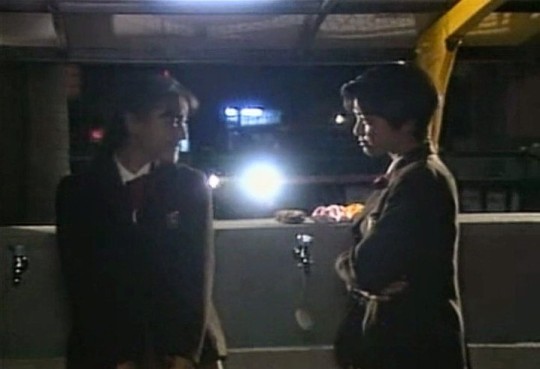
Sono Heart, as it’s nicknamed, starts off as a typical heteronormative high school romance: bumbling protagonist Shiina Hiroko (Isshiki Sae) is desperate to get closer to her crush Katase Masato (Kimura Takuya), star of the school basketball team and all-round nice dude. However, a spanner in the works comes slouching along in the form of female classmate Aso Saki (Uchida Yuki, in her debut role), a mischievous, short-haired personification of trouble who Katase turns out to have feelings for. One day, Hiroko gets into a fight with Saki, and they end up having to stay together after school as punishment. But that afternoon gives them the opportunity to bond over a heart-to-heart conversation, and things seem to improve… until, just before leaving, Saki kisses Hiroko. And then everything changes.
Or rather, everything changes eventually. What’s great about this show is that it doesn’t take shortcuts: Hiroko doesn’t instantly fall in love with Saki. Instead, what you get is a surprisingly layered portrait of a high school girl whose coming to terms with queerness is merely a natural extension of reckoning with her burgeoning sexuality. And, because Saki is self-destructive in her depression and makes a game of belittling, worrying, and infuriating anyone who cares about her, it’s really a story about what it means to love another person rather than a romantic ideal. A word of warning, though: Katase is actually quite a large character, as he and Hiroko end up becoming friends. Also, the ending is very abrupt and inconclusive, though rest assured that it doesn’t try to roll back Hiroko’s feelings, or pair either girl off with a guy.
(CW: self-harm, attempted suicide, bullying, homophobia, underage drinking)
7. Chaser Game W: Power Harassment Boss Is My Ex-Girlfriend / チェイサーゲームW: パワハラ上司は私の元カノ (10? 30-minute episodes, 2024) (canon) - MyDramaList | AsianWiki
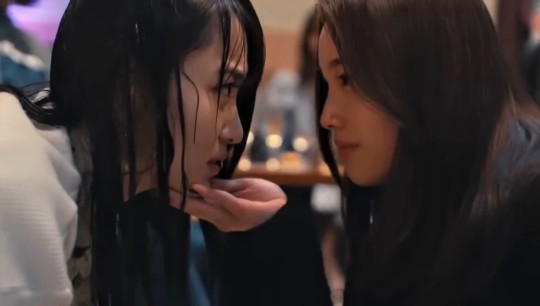
Probably jumping the gun here as only two episodes have aired as of writing, but I feel honour-bound to recommend this as it’d probably appeal to a lot of people, if only they knew about it! Chaser Game W is a standalone spin-off of Chaser Game, itself an adaptation of a manga of the same name by Matsuyama Hiroshi and Matsushima Yukitarou, but you don’t need to know anything going in.
Protagonist Harumoto Itsuki (former Keyakizaka46 captain Sugai Yuuka) has been assigned a new job: her company has been asked by a Chinese conglomerate to develop a game adaptation of a GL manhua, and she’s been tapped as the project leader. However, what appears to be an exciting prospect soon becomes a terrifying one, as the person sent by the client to supervise turns out to be her ex-girlfriend from university (Lin Dongyu, played by Japanese actress Nakamura Yurika), who is now married to a Chinese man (played by a Japanese actor) and has a child, but remains hell-bent on exacting revenge on Itsuki for their bad breakup. This is a romantic (melo)drama rather than a psychological thriller, though, so you won’t be watching Itsuki getting terrorised the entire time. While she is understandably upset by her ex’s current behaviour, Itsuki can’t forget about their happy days together, and Dongyu herself veers between being a sneering bully and craving Itsuki’s affection.
Do note that the show isn’t without its flaws: it’s very Japanese about the Chinese thing, which is to say it’s filled with comments which range from somewhat offensive to borderline racist, and the script will probably give you a headache if you know even the slightest thing about game development. Your mileage might vary on the ex too, as she can be really quite nasty to Itsuki and her teammates. But if you can overlook those issues, this is a rare prize indeed: a TV drama focusing on a canonical F/F pair, who are specifically exes, and in a workplace setting.
(CW: bullying)
8. Doctor X / ドクターX (7 seasons and counting, 2012~) (subtext) - MyDramaList | AsianWiki
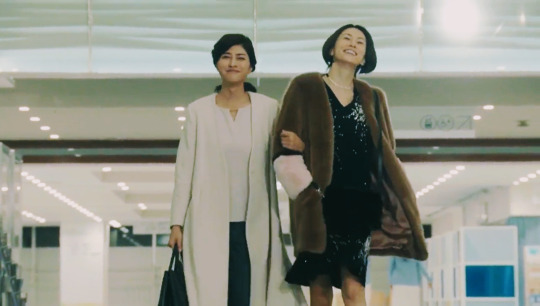
To be very honest, I was in two minds about including Doctor X on this list. It is, with a few notable exceptions, misogynistic and reductive in its depictions of women (especially in the first two seasons), gives too much screentime to objectively awful and subjectively annoying men, doesn’t respect the work done by medical personnel apart from surgeons, and on the technical front is formulaic, repetitive, and often lazy in its writing and presentation. Unfortunately, the dynamic between the genius surgeon protagonist Daimon Michiko (Yonekura Ryoko) and her anaesthesiologist wife partner friend Jounouchi Hiromi (Uchida Yuki) is almost unparalleled in its excellence.
The premise of the series is basic indeed: Daimon Michiko is a freelance surgeon with a healthy disrespect of rules and authority and, unluckily for her detractors, a cast-iron guarantee that she will succeed in any surgery, no matter how difficult. She’s initially portrayed as a lone wolf who’s dismissive of the entire hospital system and anyone who’s part of it— but her interest is piqued by the anaesthesiologist Jounouchi, who is skilled beyond her peers and chafes against the idiocy of her colleagues. For all its flaws, the first season – which is more serious and edgy in tone compared to the others, and isn’t an ensemble cast like the post-S3 seasons – is a fantastic depiction of two people being perfectly matched in skill, intellect, and outlook, and how they come together despite one being standoffish (Jounouchi) and the other not being used to reaching out to or even respecting other people (Daimon).
The seasons after that sadly ditch the emphasis on Jounouchi being Daimon’s professional equal, but in exchange offer up another rare and unexpected gift: two women in their late thirties / early forties who are partners both at work and in private. Jounouchi is Daimon’s designated anaesthesiologist, assisting with nearly every surgery, and she spends so much time at Daimon’s agency-office-slash-house you’d think she’d moved in. Also, after a point they just start being wonderfully dorky and comfortable with each other, while still being consummate professionals in the operating theatre. Although the show is very much focused on Daimon Michiko as its sole protagonist, Jounouchi is undoubtedly the character most significant to her – even more than Daimon’s father figure, the head of the freelance agency – and this is highlighted in the story from time to time. They are very, very good. I just wish the series was better.
Note: If you’re curious, I would recommend watching the very first episode in full– by the end you should know if you’re invested enough to continue, otherwise drop it and live in the happy knowledge that you dodged a bullet. If you aren’t so lucky, I’d advise skipping the surgery segments when they start to bore, and in general to skip liberally. Also, season 4 is not worth watching as a whole, except for the last two episodes, which absolutely should not be missed. Sigh. I can’t speak to seasons 6 and 7, due to having paused mid-S6.
Side note: If you’ve watched Doctor X already and liked it (or at least like Daimon and Jounouchi), but haven’t tried Miss Sherlock yet, definitely give that a go because there seems to be a big overlap in the fandoms. Maybe it’s because they both feature a genius protagonist, have the two largest female characters being work partners, and domestic vibes…?
(CW: sexism, genre-typical gore)
Bonus: SKY Castle / SKY 캐슬 (20 episodes, 2018) (subtext) - MyDramaList | AsianWiki
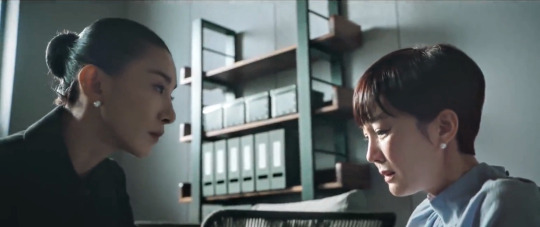
(Note: slight spoilers for the early episodes, but it’s necessary in order to give a more accurate recommendation regarding the F/F subtext, especially as the show is not primarily focused on any one relationship.)
This one’s a bonus because unlike the others on this list, there’s no close relationship between two female characters which could be interpreted in a romantic light. That’s not too surprising as the show is all about the women of a several super-wealthy families trying to get their children into the top Korean universities (equivalent to the Ivy League) whilst supporting their husbands in the rat race: a decidedly heteronormative premise, albeit one that’s executed in an award-winning manner.
So why am I listing it? Well, it’s because somehow, in this series about heteronormative and highly gendered nuclear families, it features possibly the most erotically-charged dynamic I have seen, even taking season 1 of Killing Eve into account. (Though it takes some time to get there, so if you try it out, please watch at least the first four episodes before making a decision!)
That honour goes to the problematic gem that is the relationship between the main character Han Seo-jin (Yum Jung-ah), who is willing to do whatever it takes to get her daughter into Seoul’s top medical school, and star tutor Kim Joo-young (Kim Seo-hyung), who is known for her 100% success rate. It starts off with a mild push-and-pull, when Han Seo-jin wants Coach Kim to take on her daughter, but is wary of the shady rumours surrounding her; the tutor stands firm, and Han eventually has to swallow her pride and accept the risks. Where it really comes into its own, though, is when Coach Kim starts to pose a legitimate threat to everything Han cares for: her daughter, her marriage (or rather, what her husband can give her), her position in the world. It becomes increasingly clear that Han should just walk away, and indeed she tries to do so many a time, only to bend in the end because the coach is key to fulfilling her dearest wish– and so to Han, for all she rages and resents and fears, Coach Kim is nothing less than temptation itself. This is the beating core of the show, and even as the plotting disintegrates and falls into melodrama in the second half, their scenes together still crackle with delicious tension every time. Watch it.
(CW: suicide, psychological abuse, child abuse, bullying, murder)
#kdrama#jdrama#sapphic#lesbian#gay#wlw#yuri#gl series#wlw series#she loves to cook and she loves to eat#tsukutabe#chaser game w#sky castle#doctor x#miss sherlock#night light#tokusatsu gagaga#painter of the wind#sono heart#list#wlw recommendations
510 notes
·
View notes
Text

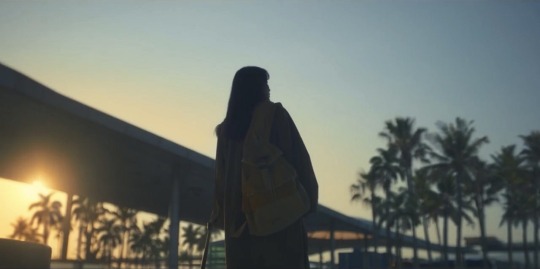
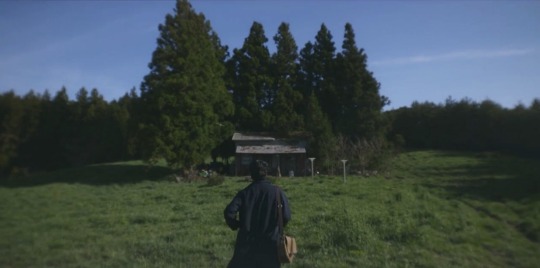




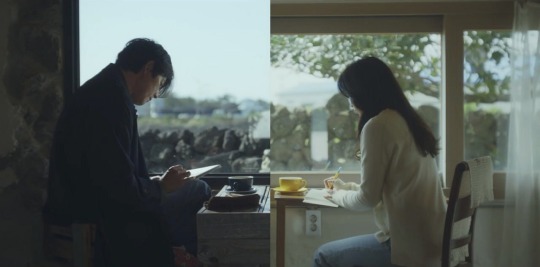
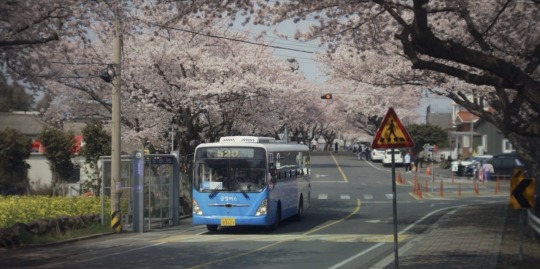

🎬 Drama : Tell Me That You Love Me (2023) - Ep.1
menutup tahun 2023, akhirnya ada drama slow pace yang bisa aku ikutin! 🙌🏻
nonton ini vibesnya berasa kaya nonton film dengan genre slice of life-nya jepang. setelah aku cek di asianwiki, ternyata (kebetulan) drama ini adaptasi dari drama jepang tahun 1995. tanpa tau karya aslinya, versi korea ini cukup bagus sih.
genre dengan less konflik, sinematografi cantik dan naskah yang rapi kaya gini pastinya aku suka. tiap ada scene estetik akan aku unggah disini deh! 😗🫶🏻
14 notes
·
View notes
Video
youtube
『ちひろさん』Chihiro-san - Netflix (Feb 2023)
Chihiro (Kasumi Arimura) used to work as a prostitute. She happened to stop by a seaside town and have a bento meal there. She loved the meal so much, she decided to settled down, work at the bento shop and star over.
She greets customers with a smile and makes small talk with them. She doesn't hide her past and talks with customers about various problems and, through their conversations, they are comforted by her.
Chihiro herself suffers from loneliness, which started with her family when she was little but by meeting her customers, she slowly learns to overcome her loneliness.
Plot by AsianWiki
Netflix is blessing us with Japanese shows every month!
Nov 2022 - First Love Hatsukoi
Dec 2022 - Alice in Borderland
Jan 2023 - The Makanai: Cooking for the Maiko House
Feb 2023 - Chihiro-san
#chihiro-san#call me chihiro#kasumi arimura#arimura kasumi#japanese drama#japanese movie#japanese film#japan#netflix japan#first love hatsukoi#alice in borderland#the makanai cooking for the maiko house
80 notes
·
View notes
Text
Beyond Evil: the Romantic Rain trope
Hello! Guess who's back on their shit again... Me!
When I first finished watching Beyond Evil/ 괴물 on 5/02/22 (yes, I know, it surprised me too during the last episode), I immediately started writing an essay about the show's queer subtext/queer coding. The essay is an analysis of episodes 1-8... and it's ridiculously long and unfinished (and probably never will be finished).
This post includes the opening parts. I like them, so I have decided to share them. These opening thoughts surround the rain scene in episode two and how it is romantic in tone.
[I do have another bit analysing Dong Sik's queer coding, which I might post one day.]
So, yeah, this is a part of a larger piece. So, that's why it feels a bit incomplete.
A disclaimer:
~ I use the word ‘queer’, a lot. But this is not meant as a derogatory/offensive term. But instead, is used by its reclaimed meaning: a generalised term to refer to someone who isn’t heterosexual.Also, all spellings of characters’ names are taken from AsianWiki.
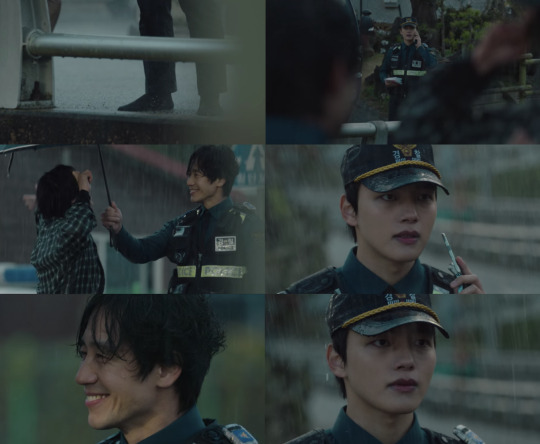
(my very gloomy-looking screenshots)
Enjoy!
“Why are you doing this to me? Why?” Han Joo Won talking to Lee Dong Sik (episode 5).
Have you ever asked someone a question that they refuse to answer? Instead of giving you the information you want, they dance around it, jump to conclusions, and add the right amount of distraction; until you can’t even remember what you asked in the first place. This is a recurrence of Beyond Evil’s main characters Lee Dong Sik and Han Joo Won. Their conversations and arguments often spark one of them to ask a question that the other does not answer.
This happens numerous times throughout the first half of the series. Typically, these questions are of the following nature:
“Just what about me interests you so much?” Lee Dong Sik, episode 2
“It’s a dangerous thing to become attached to someone. Don’t you think?” Lee Dong Sik, episode 4
“Why can’t you leave me alone?” Lee Dong Sik, episode 5
(English translations taken from Netflix)
Oftentimes these questions are more for the audience to ponder on, rather than for the characters to outright answer. This is why they aren’t answered with verbal confirmation but instead, with the character’s actions.
In the thriller, crime, and mystery genres, it is usual to have a protagonist investigate and chase our anti-hero/sympathetic villain. Beyond Evil (otherwise known as Monster/ 괴물) uses this narrative trope as the basis of its storytelling: one hotshot young guy comes from the big city to investigate an older seemingly unhinged man of a crime he may or may not have committed. But over time, as the protagonist learns more, we get to see the shades of ambiguity that are bursting at the seams. Furthermore, both characters will be forever changed because of their relationship and the events that follow.
One element that makes Beyond Evil stand out from others within the same genre is that this story isn’t really about a small hometown murder. It uses the murders within this rural area as a canvas in which to tell the real story: love. One way this is proven is that the story focuses on the victims and their friends and families, and the overall community, instead of the killer(s).
Beyond Evil explores and showcases the Ancient Greeks’ philosophy of the seven kinds of love:
Eros: romantic love; passionate, lustful, the want for sexual intimacy
Philia: friendship; affectionate, platonic, sweet and equal
Storge: familial; strong bonds, kin-ship, unconditional
Agape: altruism; empathy, selflessness, love for worldly experiences
Ludus: new love; non-committal, flirtatious, playful
Pragma: committed love; long-term relationships, companionship, maturity
Philautia: self-love; self-esteem, self-worth, a necessity
(information source: https://www.wellandgood.com/greek-words-for-love/)
It is a story highlighting the importance of love: all the different kinds of love we encounter in our lives; how we are affected by them; what it looks like to live without love; including, when it's time to accept love and when it's time to let it go. But most importantly, sometimes, you can find love in the most unexpected place.
[But before we get ahead of ourselves, let’s sprinkle some background information and analyse the first half (the first act, if you will) of Beyond Evil (episodes 1-8) and look at how Joo Won ended up broken-hearted in Dong Sik’s front garden.] Redacted for this post.
ii
On the first watch-through of this show, the audience is told the story predominantly through Joo Won’s gaze; which is biassed and trifled with unreliable narration. Through his perspective, we are toyed with and encouraged to constantly doubt the other characters. The show expertly uses Alfred Hitchcock’s film theory Pure Cinematics for instilling doubt, harnessing the power of the editing process to define the visual narrative. In other words, the show creators displayed a key understanding of how the narrative changes with context.
The best example of this is the butcher shop sequence on the night of Kang Min Jeong's disappearance. We are first introduced to the sequence from Joo Won’s perspective: all of Dong Sik’s actions are awkward and suspicious, and we over-analyse his movements and actions/inactions to come to the conclusion that he’s done something. Then later on in the show, we revisit this sequence from Dong Sik’s perspective and yes, he has done something but not what we were led to believe. All of his awkward and suspicious behaviour becomes a painful and morally grey experience, where the audience feels great sympathy for him.
The context defines the narrative. Without the full context, we do not get the full story.
And only with the full context, can we look past the structure of the piece and unveil the answers to the questions that are asked... we reveal the truth.
Whilst rewatching the show, the viewing experience is completely different. All the pieces are already fitted into place, so I spent less time trying to decipher and instead, leisurely trying to digest. The experience is nowhere near as suspenseful but far more gut-wrenching. This is because the viewer already has the full story - the full context - everyone’s actions and inactions are accounted for: we know why x was acting sketchy in episode y because of what they did 20 years ago, and so on.
When everyone’s actions are accounted for it is a lot easier to follow the story from Dong Sik’s perspective. We see the injustices that innocent people go through more harshly, we also see the cruelty of the guilty from the get-go. We are able to focus on the smaller details of people’s relationships, instead of thinking about the big picture. We are also able to take the time to truly understand the visual language the creators are showing us and how that shapes the narrative.
There is one sequence that comes to mind that is told purely from Joo Won’s perspective. There is no dialogue during this particular sequence of shots, so the audience is completely reliant on the visual language to understand what is being conveyed. This scene is greatly important for the show as a whole, as it gives us an uncensored look into Joo Won’s thoughts. Without it, the narrative of the story would be different, as it adds context to Joo Won’s actions later on in the series. That scene is from episode two.
iii
Joo Won and Dong Sik are on patrol, still getting used to each other as partners. One) because their personalities clash and two) because Joo Won is actively investigating Dong Sik for murder, which is just hanging there between them. They stop their patrol to help a disabled young adult who is lost in the rain. Dong Sik takes charge of the situation because he is better equipped at interacting with disabled people and the people of Manyang (and the wider Munju area) as a whole. This scene is one of the most important as it is an untainted humanisation of Dong Sik’s character, giving the audience (and Joo Won) a first glimpse into who Dong Sik really is.
Up until this point, Joo Won has only seen Dong Sik as a character: the killer; “the suspect” as Dong Sik later describes it. He vehemently dislikes him but still has a misguided interest in Dong Sik’s life. But this suddenly is challenged. Standing there in the rain, with no shoes on, smiling at the young man who is dancing, we get to see what Joo Won sees for the first time: kindness, humility, and beauty.
It’s a glitch in the system.
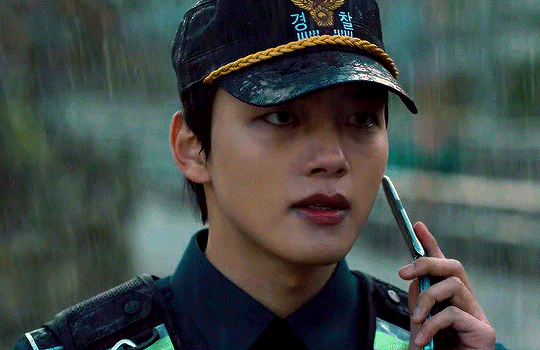
This scene is slightly baffling. It poses the question of what the creators are truly trying to tell its audience. Is it that these two characters work best when they are unified and Joo Won’s assumptions of Dong Sik are wrong?... Well, yes ... but also, of course, hiding in plain sight is the subtext that Joo Won is gay/queer.
Which point takes paramount importance? It would seem that in this scene it’s the subtext. We see why this is so through the sequence of shots:
After the situation has been assessed by the pair and they have come to an agreement. Joo Won goes to the shop to get supplies to help with the young man and when he returns, we, the audience, are faced with a sequence of ever-closing in close-up shots.
With each cut, the camera is showing us what Joo Won is choosing to focus on; where his eyes are gravitating. What is odd about the sequence is the information that is chosen to be shared: Dong Sik's feet, the umbrella, the smile: kindness, humility, beauty.
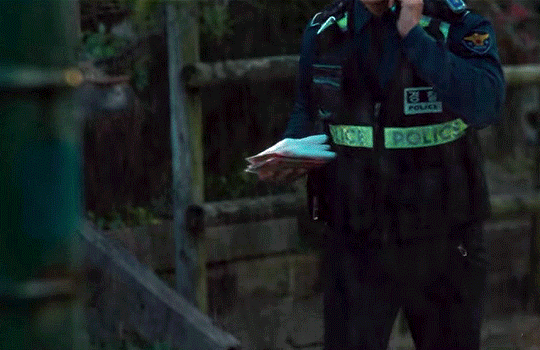
Joo Won returns to the pair and falters, he seems shocked into stillness. Which almost seems frivolous, as Joo Won is already privy to two-thirds of the information being presented.
Joo Won already knew that Dong Sik had given his shoes to the young man.
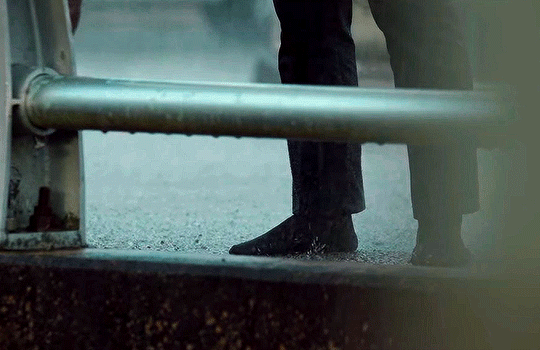
He knew about the umbrella because he is the one who gave it to Dong Sik to use.
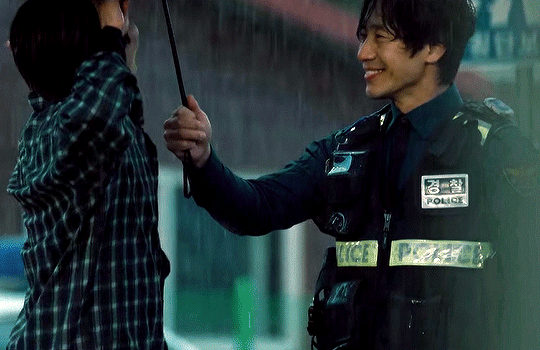
Then… they cut to a slow-motion close-up of Dong Sik’s smiling face, rain behind him and sunshine kissing his face. This last shot is the only piece of information we didn’t have before Joo Won went to the shop because it’s Joo Won’s thoughts at that moment. It’s no longer information that can be detailed in a police report but a deeply human moment. He has digested the information in front of him and this is his conclusion: beauty.

This screams romantic undertones- especially with the knowledge that rain is often used as a romantic trope in visual media.
“Rain seems to go along with pivotal moments in characters' lives. It's implied that if you can ignore bad weather and brave the elements, then your big moment is even more real and intense and genuine. If you want to be deserving of your love, you won't care if it's raining, you will rush out into the rain to be with her or him-” tvtopes.org, Romantic Rain.
This trope is used often within Korean media, especially within the romance genres. So, it is a visual language that is common knowledge with Korean audiences. It is less likely to be seen within the crime and mystery genres, so it speaks volumes that the creators decided to include it.
Here are three examples of Korean dramas that use the Romantic Rain trope to show the protagonists have romantic feelings for one another:
Legend of the Blue Sea: offering an umbrella as protection/taking someone into your care
Flower of Evil: Hee Sung allows himself to become soaked because of his feelings
Goblin: slow motion shot of the characters passing one another in the rain
How Beyond Evil uses the same visuals within this scene:
Protection: Joo Won gives Dong Sik an umbrella and forensic shoe covers
Soaked: Joo Won stops mid-run to stare at Dong Sik in the rain, seemingly awestruck/concerned
Slow-motion: Joo Won’s perspective in the following sequence of close-ups is in slow motion
This scene is not the moment that Joo Won realises the extent of his feelings for Dong Sik. It is used as supporting evidence for the later conversations Joo Won has with Park Jung Je and Nam Sang Bae. In which he is asked by both of them why he cares so much about the cold case (in which Dong Sik is his suspect). To which, Joo Won replies the first time he’s asked:
“This is Lee Dong Sik’s–”
He shouts this and has to stop himself, calming down to answer that he’s determined to solve the cold case because one of the victims is Lee Dong Sik’s sister. The key person in that answer is Lee Dong Sik. He is the reason Han Joo Won cares so deeply [and because of his own personal involvement] about a case that no police officer would try to solve:
“-there isn’t a single cop in the country that would prioritise such a case.” [Park Jung-Je.]
Han Joo Won is a determined person. When he sets his mind to something, he will achieve it, even if it upsets other people or hurts himself. He’s a person who cares deeply about things and can become easily fixated. If the creators wanted us to see Joo Won’s actions deriving from a place of spite or a self-righteous need for the truth, they would never have used the Romantic Rain trope.
Following the scene in the rain, Joo Won chooses to not act upon what he felt then and instead, suppresses his feelings. It makes sense. He’s experiencing attraction (eros) for his murder suspect; the man that he has been obsessing over; the man who only now is more than just a character to him. He is becoming a human and a very attractive one, at that.
Joo Won doesn’t know what to do with that newfound knowledge. So… he starts to lose his cool. This is obviously aided by other factors…
Without this scene, and those particular shots, Joo Won’s intense interest in Dong Sik and his mental decline over the next two episodes wouldn’t make as much sense.
When we take the queer subtext into consideration, it makes the puzzle pieces fit all that bit more snuggly. It gives us the knowledge that Joo Won has humanised Dong Sik in his mind, he likes what he sees and he doesn’t know how that fits around his rigid moral compass… and what Joo Won knows about himself because really this scene is more about Joo Won discovering himself than it is about Joo Won discovering Dong Sik.

---
Look how devastated he is. This man has literally stalked the very handsome man he's staring at, has taken pictures of him, has said pictures on his tablet/printed out, spends his days staring at these pictures whilst biting his lip- then gets all bent out of shape because he realises he's attracted to him?? Baffling.
That is it for that scene's analysis, I remember writing more but I must have deleted it at some point. Anyway, hope that was entertaining and easy to read (I have the tendency to ramble on/make grammatical errors haha).
See ya!
#beyond evil#jtbc beyond evil#han juwon#han joo won#lee dongsik#jwds#sir is it gay to use romantic tropes#whilst staring at your murder suspect??#look how beautiful jw thinks ds is!#my guy is doomed#beyond evil analysis
180 notes
·
View notes
Note
on asianwiki suho's real name IS romanized as 'joon-myun' lol
fucked up and weird fact i had no idea about
4 notes
·
View notes
Text
DON’T STOP MY BEAUTIFICATION!
Starring Raiku from
LIFE-LOVE ON THE LINE
It looks really good from the preview in the above article
And, here are some pics from the series…

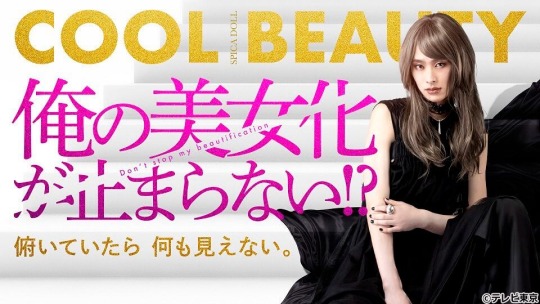
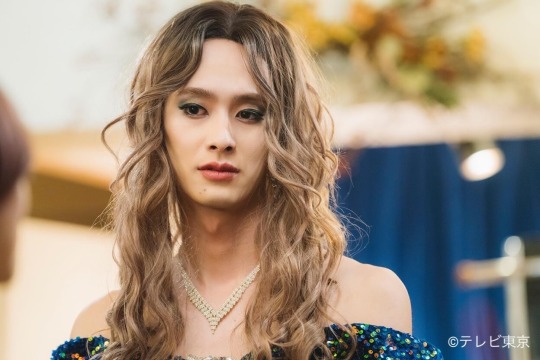


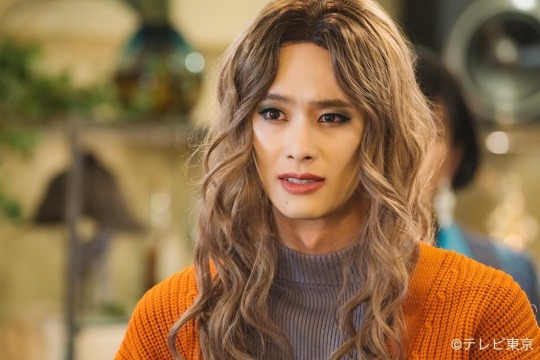
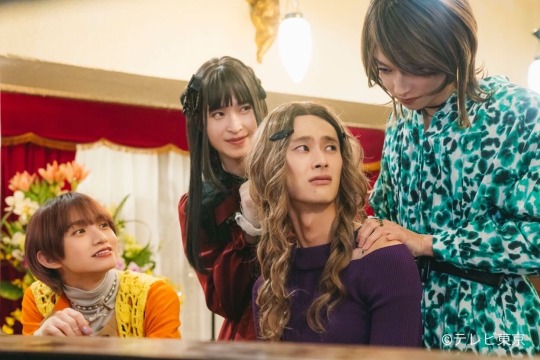
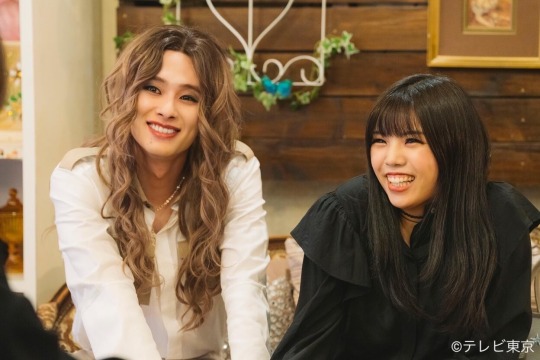
#don’t stop my beautification#life love on the line#life-love on the line#japanese actor#raiku#preview#lgbtq#trans woman
8 notes
·
View notes
Text
Love Is For Suckers
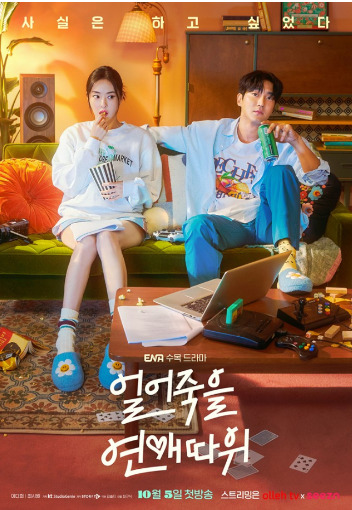
It had been a while since I watched a nice romantic comedy. It had a little bit of everything and there was substance in the plot. I liked the characters and their stories. The friendship between Jae Hoon and Yeo Reum feels natural and genuine. And I like the quartet of high school friends: Yeo Reum, Jae Hoon, Dae Shik and Hye Jin.
You could say this series is divided into two parts. The first one is where we see Jae Hoon's love for Yeo Reum. The friendship that he doesn't want to cross, afraid of being rejected because she is still hung up on the finance who left her. Kim In Woo returns after living in the United States for many years. He now wants to get back together with Yeo Reum. She goes back to him mostly because she keeps thinking about how they were before he left. She doesn't want to face the fact that they have both changed.
The second half of the series focuses on how Yeo Reum realizes and faces the fact that she is in love with Jae Hoon. And this happens in the process of producing Kingdom of Love 2 where he became a participant to replace a person who left at he last minute. But in this reality show will also be participating the young woman his mother made him have a blind date with months ago.
Here we are introduced to another set of characters that also caught my attention. I became invested in Ji Wan's and Chef John's story. Chef John, who had been a jerk in the first part of the series, gets to show us a different side of him that makes us forget that first side we saw earlier.
I won't go into too many details, but I liked how each character faces their sadness, difficulties and move on. I like the fact that those characters we learned to care for have their happy ending.
This is a really sweet story and I recommend it!
Poster from AsianWiki - https://asianwiki.com/Love_is_for_Suckers
#love is for suckers#korean drama#romantic comedy#choi si won#lee da hee#jo soo hyang#lee dae hwi#park yeon woo#kang seo joon#son hwa ryeong#lee yoo jin#min jin woong#noh susanna#song jong ho
6 notes
·
View notes
Text
oh shit, remember how we kept using the actress's name for Lee Dongsik's mother, because the wiki doesn't list it? I only noticed this on my 3rd watch, but the show DOES name her. There's a blink and you miss it scene from ep. 7.
Lee Dongsik's mother is named Kim Yeong-Hui/Yeonghui (Age 63).
(leaving this as a reference for Beyond Evil fanworks. I can't update the official Beyond Evil wiki on AsianWiki, but I've updated Wikipedia)
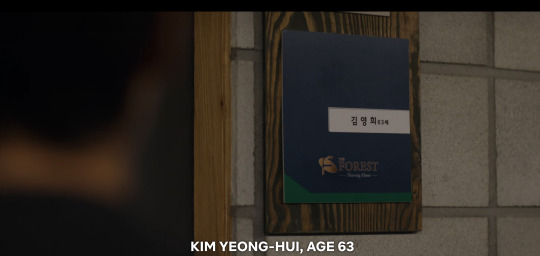
20 notes
·
View notes